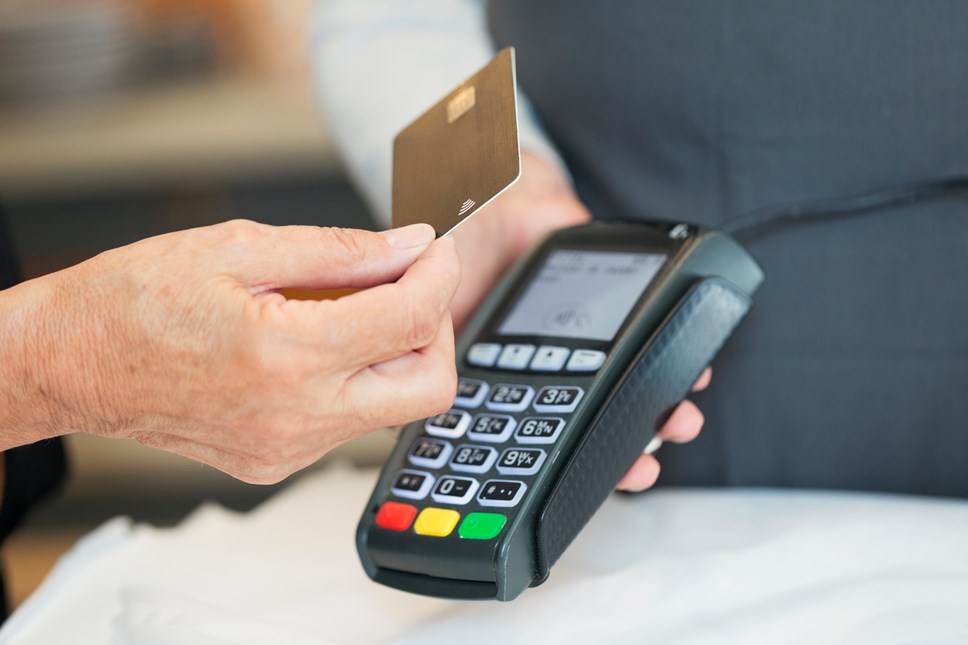
10.8 million Brits consider themselves virtually cashless*
- 21% of UK adults no longer pay for small transactions with cash;
- Most (59%) people predict they will be cashless by 2025;
- However, 41% of people don’t believe we’ll ever be a truly cashless society.
New research** reveals that 10.8m UK adults now consider themselves to be virtually cashless, using payment methods other than physical notes and coins to pay for lower value items.
The research, commissioned by GoCompare Money, found that UK consumers are now more likely to make payments of under £30 using contactless technology than cash and, many no longer carry money at all. Over a third (35%) of people surveyed regularly go out with just a credit or debit card, while 16% leave home with just a single contactless payment method. Nearly a fifth (19%) said they simply don’t like carrying cash around.
While 21% of people surveyed think they are already cashless, most (59%) participants predict they will be cashless within the next seven years. However, 41% don’t believe that we will ever be able to do without coins and notes.
The last decade has seen a huge shift away from cash payments – from chip and PIN cards to phone-based contactless technologies and the research reveals that it isn’t necessarily just the younger age groups driving the contactless revolution.
The research revealed that people aged 45 to 54 (45%) and 35 to 44 (42%) lead the way for contactless payments. Only a third of what one might consider the more tech savvy young adults (18 to 24), said they would opt for contactless - the same percentage as for those aged 55 and over. Younger adults were also the age group most likely (44%) to pay in cash (compared to 37% for all adults).
Commenting on the research, Georgie Frost, consumer advocate from GoCompare Money said, “Last year we saw debit cards become the dominant payment method in the UK, overtaking cash for the first time. Now we are seeing contactless payments edge ahead of cash. Almost 11m people already think of themselves as ‘cashless’, while many more can now imagine their own cashless future.
“While the contactless revolution is being driven by the genuine sense of convenience experienced by shoppers, there is plenty of evidence to suggest that there is also a dangerous disassociation between electronic payment methods and spending ‘real money’. Our study reports that 17% of contactless users admit to losing track of spending and 13% saying they are worried it encourages them to spend more than they should.
“Just as contactless payments are unlikely to mark the end of cash entirely, we need to ensure that old school budgeting, checking statements and reconciling payments doesn’t go out of fashion too.”
For more information on contactless payments visit: https://www.gocompare.com/credit-cards/contactless-payments/
-Ends-
For further information please contact:
Anders Nilsson or Martyn John at GoCompare on 01633 654 054 / 01633 654 725
Gordon, Jason or Liz at MAW Communications on 01603 505 845
Keep up-to-date with GoCompare on Twitter; @GoCompare
Notes to editors
*The 10.8 million figure is based on the following: according to the research 21% of UK adults consider themselves virtually cashless. The number of UK adults 18 and over is 51,767,543 (ONS June 2017 Population estimates for UK England & Wales, Scotland and Northern Ireland). 21% of 51,767,543 = 10,871,184.
**On 20 July 2018, Bilendi conducted an online survey among 2,004 randomly selected British adults who are Maximiles UK panelists. The margin of error-which measures sampling variability-is +/- 2.2%. The results have been statistically weighted according to the most current education, age, gender and regional data to ensure samples representative of the entire adult population of United Kingdom. Discrepancies in or between totals are due to rounding.
*** According to figures from UK Finance, the trade association representing the UK finance and banking industry.
About GoCompare
GoCompare is a comparison website that enables people to compare the costs and features of a wide variety of insurance policies, financial products and energy tariffs.
GoCompare does not charge people to use its services, and it does not accept advertising or sponsored listings, so all product comparisons are unbiased. Gocompare makes its money through fees paid by the providers of products that appear on its various comparison services when a customer buys through the site.
GoCompare does not sell its customers’ data.
When it launched in 2006, it was the first comparison site to focus on displaying policy details rather than just listing prices, with the aim of helping people to make better-informed decisions when buying their insurance. GoCompare has remained dedicated to helping people choose the most appropriate products rather than just the cheapest, and has teamed up with Defaqto, the independent financial researcher, to integrate additional policy information into a number of its insurance comparison services. This allows people to compare up to an extra 30 features of cover.
GoCompare is the only comparison website to be invited to join the British Insurance Brokers’ Association (BIBA) and is authorised and regulated by the Financial Conduct Authority (FCA).
For more information visit www.gocompare.com and www.gocomparegroup.com
